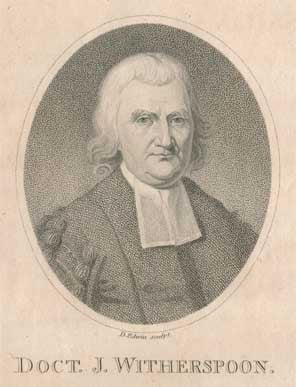The Whole Earth Trembled When he Walked
Our title was the conclusion of an individual regarding Brig. General Andrew Lewis upon seeing him. Fully six feet tall, there was a ruggedness about him that arrested every man’s opinion. He was just the person needed to settle accounts with those native Americans who were troubling the Scot-Irish settlers in Virginia, and making it hard to not just live in this new land on their farms, but also worship the God of their fathers in colonial America.
Andrew Lewis was born in Ireland in 1720. When he was eleven years of age, his parents, John and Margaret Lewis, came first to Cumberland County in Pennsylvania, and then south into the Shenandoah Valley of Virginia. They were the first settlers in Augusta County, Virginia, and Presbyterian to the core. Andrew grew up on the farm and somewhere in the 1740’s married Elizabeth, from which seven children were born over the years. He was involved in the defense of the homeland in that he was an officer of the Augusta militia.
When the French and Indian war came, he became a captain in Col. George Washington’s regiment. Wounded at Fort Necessity south of present day Pittsburgh when it surrendered with Col Washington as commanding officer, he continued on after being exchanged. Promoted to Major, he oversaw the frontier fortifications along the river of Pennsylvania and Ohio. Against Fort Duquesne, he was captured again, and sent as a prisoner of war to Quebec, where he was not released until 1759, when he went home to Virginia.
The rising threat of war with Great Britain brought him into a position of importance again. Assigned by the Continental Congress to protect Virginia, he was raised in rank to Brig. General. These colonial warriors fought on two fronts. Not only did they fight the British on the coast of Virginia, but they also fought the Indians on the west of Virginia.
In the fall of 1774, General Andrew Lewis raised the largest number of men — over one thousand militia — ever raised up to that time in American history. Their purpose was to once and forever stop the Indian raids against American settlers during this vital period of history. It would be no easy task. Starting on September 11, 1774, this collection of regiments from Virginia began a forced march of over one hundred miles to the Ohio River. In what has been billed the first battle in the American War for Independence, the great majority of troops under General Lewis were Presbyterians from congregations of the Presbytery of Hanover. It was like the church militant going out to do battle.
The results of this battle will be told in a future devotional on October 11. But for now, it is clear that only a fearless leader like Andrew Lewis could lead such a mighty force into the wilderness to give liberty and freedom once and for all time for the Presbyterian pastors and people of Virginia.
Words to live by: Colonial America was very much of a trowel and sword project. One the one hand, it was necessary to build up the land. On the other hand, it became necessary to defend what you had started to build. Some settlers had found it too difficult to build and fight at the same time, so they were leaving to find fertile ground closer to Philadelphia. Pastors like Samuel Davies were calling upon them to rise up and fight the good fight of faith. Sword and trowel; trowel and sword — both were needed in the present battle. And Andrew Lewis was God’s man for both of these endeavors. God continues to need leaders who will stand in the gap. Will you offer yourself as one?


